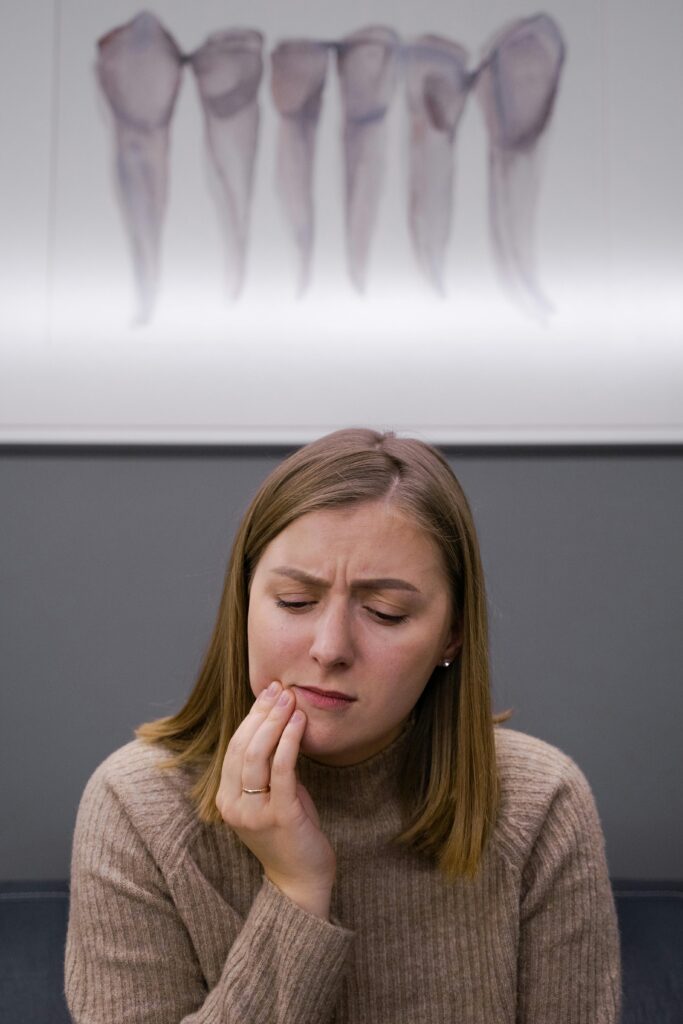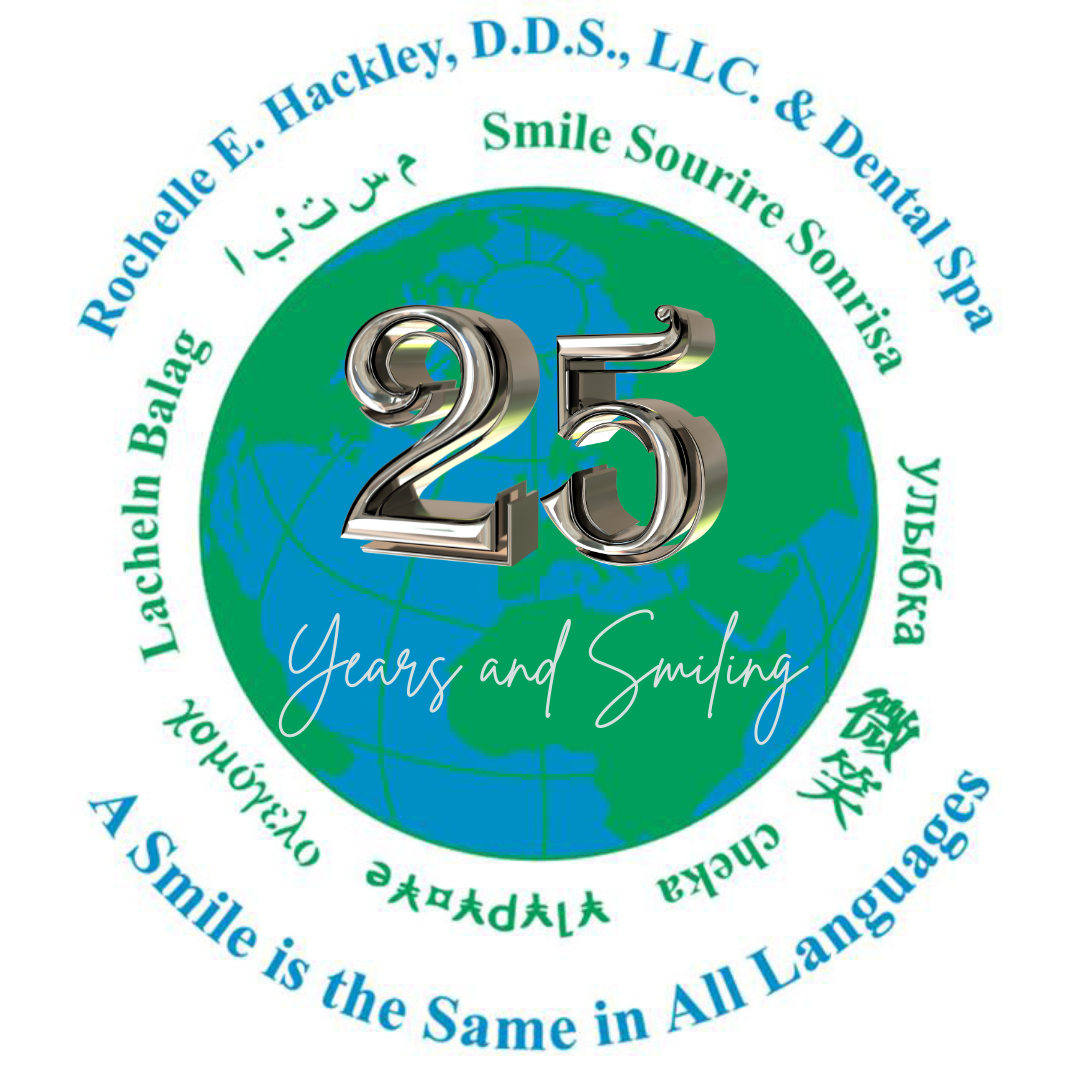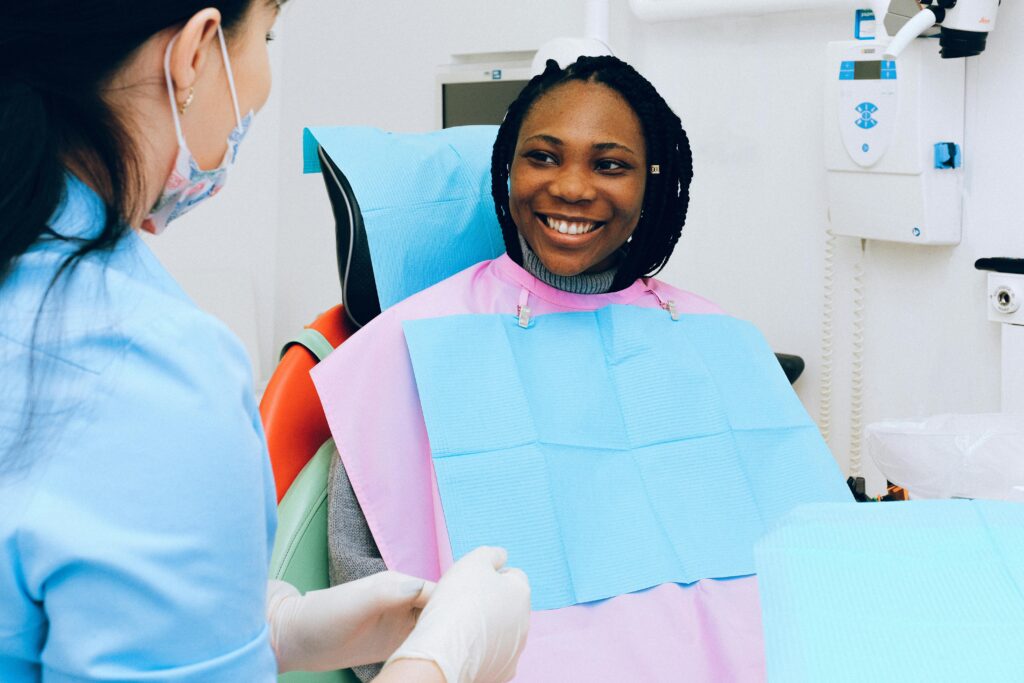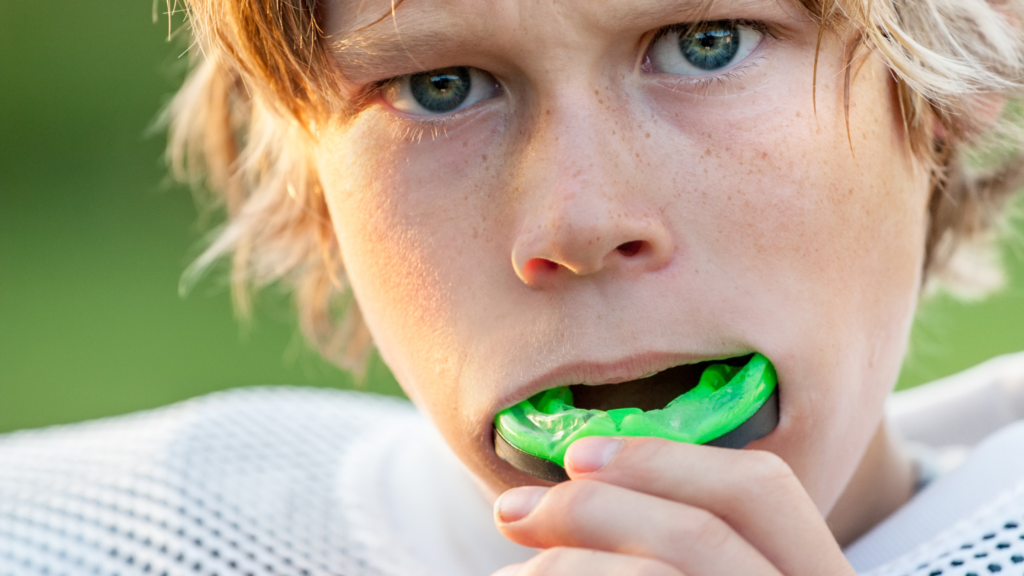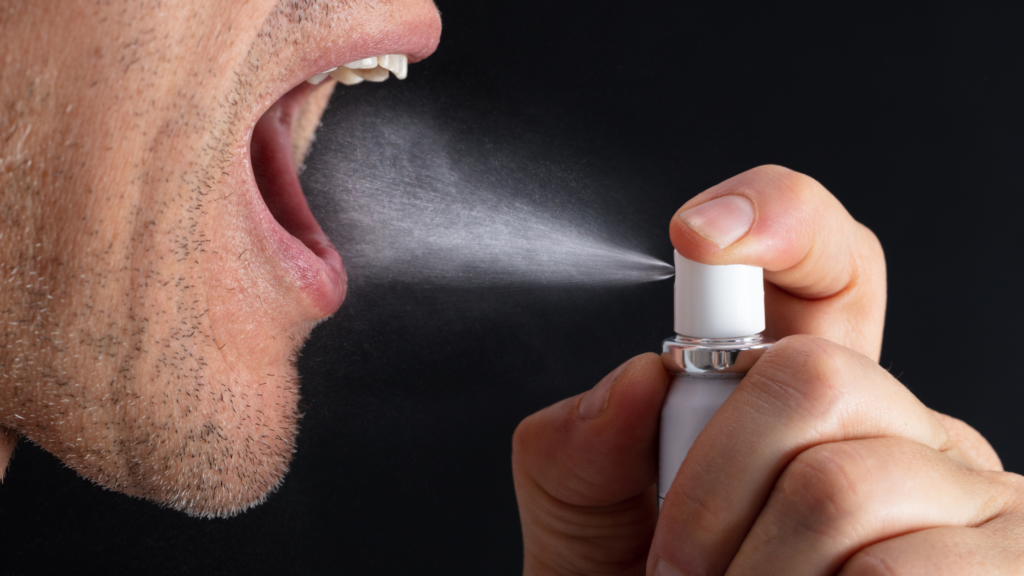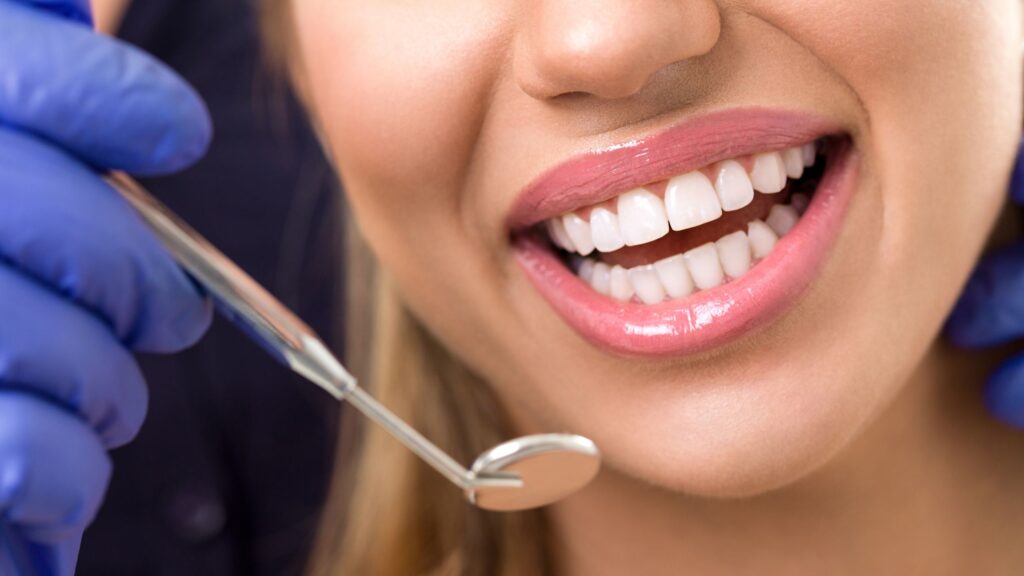Tooth pain can come on slowly or hit you all at once—but when it’s severe, it can stop everything. It’s more than just an inconvenience. It can interfere with eating, sleeping, and even thinking clearly. If you’re dealing with unbearable tooth pain, what to do might not feel obvious in the moment. That’s where knowing your options, including the difference between a general dentist and an endodontist, really matters.
What Causes Intense Tooth Pain?
Severe tooth pain often means something serious is happening beneath the surface. It could be caused by a deep cavity, a cracked tooth, or gum infection. Most commonly, it’s an infected tooth nerve or abscess. Pain like this doesn’t usually go away on its own. It’s your body’s way of signaling that urgent attention is needed.
Unbearable Tooth Pain: What to Do at Home First
If you can’t get to the dentist right away, there are a few things you can try at home to manage the pain temporarily. Rinse your mouth gently with warm salt water to reduce inflammation and clean the area. Take over-the-counter pain relievers like ibuprofen to ease discomfort. Applying a cold compress to the outside of your cheek can also help reduce swelling and numb the pain. But keep in mind, these are only temporary fixes. The real solution is seeing a dental professional as soon as possible.
When Emergency Dental Care Is Needed
Some signs mean you shouldn’t wait for a regular appointment. If your pain is sharp, throbbing, or radiating to your jaw or ear, it could be a sign of a serious infection. Swelling in your face or neck, fever, or difficulty swallowing are also red flags. These symptoms mean it’s time to call for emergency dental care.
At Hackley DDS, our team offers same-day emergency appointments when possible. During emergency care, we’ll examine your tooth, take X-rays if needed, and work quickly to reduce pain and treat the root cause. Sometimes that means a filling or crown—but in more severe cases, it might mean a root canal.
Unbearable Tooth Pain What to Do: Dentist vs. Endodontist
Not sure who to call first? Many people don’t know the difference between a general dentist and an endodontist. A general dentist handles most routine care—cleanings, fillings, crowns, and some root canals. But when the issue runs deep, your dentist might refer you to an endodontist.
An endodontist specializes in treating problems that involve the inside of the tooth—especially the tooth pulp and nerves. If you need a root canal or treatment for a tooth that has suffered trauma, an endodontist can offer more advanced tools and techniques. For severe cases, seeing an endodontist may lead to faster relief and better outcomes.
Preventing Future Tooth Pain
While not all toothaches are preventable, many are. Regular brushing and flossing, along with twice-yearly dental checkups, are your best line of defense. Limit sugary foods and drinks, wear a mouthguard if you grind your teeth, and don’t ignore small aches—they can become big problems quickly.
If you’ve had a filling or crown come loose, or if a tooth feels more sensitive than usual, call your dentist before it becomes an emergency.
Find Relief with Hackley DDS
Tooth pain doesn’t have to control your day. The team at Hackley DDS is here to provide compassionate care and expert treatment when you need it most. We’re ready to guide you from pain to relief, whether it’s a routine fix or something more complex.
If you’re suffering from unbearable tooth pain, don’t wait another minute—contact us and get the care you deserve.
Going to the dentist is important for your health. However, if you don’t have dental insurance, it can feel overwhelming. Delaying care can lead to more serious and expensive problems. That’s why finding a dentist without insurance in Maryland is so important—and why Hackley DDS is here to help.
Dental Care You Can Afford
Many people skip appointments because they worry they can’t afford it. At Hackley DDS, we understand. We offer payment plans and in-house membership plans to make treatment accessible. Our in-house plans cover preventive care like cleanings, exams, and X-rays, and they include discounts on other services. You get the care you need—without breaking your budget.
Finding a Dentist Without Insurance in Maryland: What to Expect
You need a dental team that listens and offers options. At Hackley DDS, we start by reviewing your dental needs and working with you to find a plan that fits. Whether you need a simple cleaning or more advanced treatment, we explain every step clearly and honestly. Our team works hard to make every visit comfortable—regardless of your insurance status.
Good Habits Start with the Right Support
While daily brushing and flossing go a long way, seeing a dentist regularly is key to preventing bigger issues. With our help, you don’t have to choose between your health and your wallet. Finding a dentist without insurance in Maryland doesn’t have to be stressful. Hackley DDS makes it simple.
Let Hackley DDS Help You Smile Again
You deserve a healthy smile—insurance or not. Hackley DDS offers flexible plans and payment options to make that possible. Don’t wait for a dental emergency to get the care you need.
Contact us today to learn more or schedule your appointment. We’re here to help you feel confident about your dental health—no insurance required.
Periodontal disease, also known as gum disease, is a serious oral health condition that affects millions of people. Without proper treatment, it can lead to tooth loss and other health complications. If you’re experiencing gum issues, it’s crucial to seek help from a dentist for gum disease Rockville to prevent further damage.
Symptoms
Gum disease often begins with mild symptoms that can worsen over time. Some of the most common early signs include:
- Red, swollen, or tender gums
- Bleeding while brushing or flossing
- Persistent bad breath
- Gum recession
- Loose or shifting teeth
If you notice any of these symptoms, scheduling an appointment with a dentist for gum disease Rockville can help diagnose the condition early and prevent complications.
Stages
Gum disease progresses in stages, starting with mild inflammation and worsening if left untreated:
- Gingivitis – This early stage is marked by gum inflammation due to plaque buildup. Gingivitis is reversible with proper dental care.
- Mild Periodontitis – The infection begins to spread below the gumline, causing pockets to form around the teeth.
- Moderate Periodontitis – Bone loss starts to occur, and teeth may begin to loosen.
- Severe Periodontitis – At this advanced stage, significant bone loss and tooth loss can happen, requiring extensive treatment.
Treatment Options
Fortunately, several treatments can help manage and even reverse gum disease. Treatment options may include the following:
- Professional Cleaning: Scaling and root planing remove plaque and tartar from below the gumline.
- Antibiotic Therapy: Medications help control bacterial infection in the gums.
- Surgical Treatment: In severe cases, procedures like gum grafts or pocket reduction surgery may be necessary.
Experiencing Symptoms? Contact Us, a Dentist for Gum Disease in Rockville Today!
Early detection is key to preserving your oral health. If you’re experiencing symptoms of gum disease, don’t wait. Schedule an appointment with Hackley DDS today to protect your smile and overall health.
Dental implants have revolutionized tooth replacement. They offer a permanent and natural-looking solution for individuals with missing teeth. If you’re considering this procedure, you may wonder about its safety. Fortunately, dental implants are one of the safest and most reliable restorative options available today. Read on to learn more about our affordable dental implants in Rockville.
The Safety of Dental Implants
Dental implants are made from biocompatible materials, such as titanium, which fuse with the jawbone in a process called osseointegration. This not only ensures stability but also prevents bone loss, a common issue with missing teeth. When performed by an experienced professional, dental implant surgery has a high success rate, often exceeding 95%.
Patients can feel confident knowing that our affordable dental implants in Rockville are both safe and effective.
Common Concerns
While any surgical procedure carries some level of risk, complications from dental implants are rare. The most common concerns include infection, implant failure, and nerve damage. However, these risks are significantly minimized when you choose Hackley DDS. Note that patients with underlying health conditions may need additional evaluations before proceeding.
Why Choose Dental Implants Over Other Options?
Unlike dentures or bridges, dental implants are a permanent solution that mimics the function and appearance of natural teeth. They do not slip or require adhesives, and they allow patients to eat, speak, and smile with confidence. Additionally, implants promote jawbone health by stimulating bone growth, which helps maintain facial structure.
Ready for Affordable Dental Implants in Rockville? Contact Us Today!
Dental implants are a safe and effective way to restore your smile. If you’re considering this option, contact Hackley DDS today to discuss your individual needs and ensure the best possible outcome. Better yet, call us at301-816-3232 to transform your smile and regain your confidence!
Are you looking for a good dentist for children with autism in Rockville? Whether it’s the first time or not, a trip to the dentist often includes lots of new sounds, smells, and sensations. For children with autism, anxiety, or sensory issues, it can be overwhelming. Regular dental care is essential to good oral health, so we have compiled a list of tips to help make your trip to the dentist as smooth as possible.
Preparing for a Visit with a Dentist for Children with Autism in Rockville
Preparation is key. Preparing a child with autism well in advance can be helpful in easing anxiety and promoting a calm and successful visit. Some offices will allow you to schedule a tour prior to your appointment to help your child feel comfortable.
It’s important to discuss your child’s individual needs, concerns, or challenges with your dentist. Every child deserves to get the oral care they need, so we work extra hard to make the experience a pleasant one for all our patients.
Creating a Visual Story
A top dentist for children with autism understands that they need special attention and consideration. One of the most recommended tools is a visual schedule or visual story. A visual story may be helpful in preparing your child as well. Going over each step helps your child practice and understand each step of the process. Your visual story might include things like:
- We will visit the dentist today to make sure my teeth are clean and healthy.
- We will walk into the office and tell the people at the front desk our name.
- While we wait, I can watch tv, color, or play games.
- When the hygienist calls my name, we will walk to a room with special chairs.
- The special chair will move up and down so the dentist can look in my mouth.
- When I sit in the chair, I will keep my hands on my belly and my legs straight out in front of me.
- The dentist will use a bright light to look in my mouth but I can ask for special sunglasses if its too bright.
- The dentist will use a tiny mirror to count my teeth.
- The dentist may take special pictures of my teeth. I have to sit still and wear a heavy apron for this.
- The dentist will clean my teeth with special tools. The dentist will show me these tools and tell me what each one does before using them.
- When I am done, the dentist will give me a special bag with a new toothbrush.
Top Dentist for Children with Autism in Rockville
We aim to make every patient’s experience a good one. We understand that for some children, this requires special considerations. If your child struggles with loud or unexpected noises, you may want to consider noise cancelling headphones for the visit. Your child can also bring an emotional support plushie to make him/her feel more comfortable.
With proper practice and preparation, dental visits for children with autism, sensory issues, or general anxiety can be less stressful. Our pediatric dentist and staff strive to make your child’s visit fun and enjoyable.
Our innovative practice integrates general dentistry, cosmetic dentistry, spa services, and body contouring. Our dedicated, compassionate team specializes in state-of-the-art dental care that includes conscious sedation dentistry, dental implants, Invisalign ®, and sleep apnea appliances. Contact Hackley DDS today to schedule an examination. We will ensure that your oral health is in expert hands.
Engaging in sports is a fantastic way to stay active, but it can also increase your risk of dental injuries. In fact, over 600,000 emergency room visits each year are due to sports-related dental injuries. From knocked-out teeth to cracked molars, a sports dental emergency in Rockville can happen in an instant. Protecting your smile starts with understanding these risks and taking preventive measures. Read on to learn more!
The Importance of Mouthguards
A custom-fitted mouthguard is one of the best defenses against dental injuries. These guards are designed to cushion your teeth from impacts. They can reduce the chance of fractures, dislodged teeth, and soft tissue injuries. Your dentist can create a mouthguard tailored specifically for you, ensuring maximum comfort and protection.
Immediate Steps After an Injury
In the event of a sports dental emergency in Rockville, acting quickly is essential. If a tooth gets knocked out, rinse it gently and try placing it back in its socket. If that’s not possible, keep the tooth moist in milk or saliva and seek dental care immediately. Quick action can often save the tooth and prevent further complications.
Ongoing Prevention for Active Families
For families with young athletes, reinforcing oral safety habits is key. Children and teens involved in contact sports should wear their mouthguards consistently, even during practice. Coaches and parents can also benefit from learning basic dental first aid to handle emergencies effectively. By creating a culture of awareness and preparedness, you can protect the smiles of everyone on the team.
Have a Sports Dental Emergency in Rockville? Contact Us Today!
Don’t let an unexpected injury sideline you. If you experience a sports dental emergency in Rockville, contact Hackley DDS right away. We can help you get back in the game safely.
In 2022, 32.6% of people who have a disability had not visited a dentist in more than 2 years. These services ensure individuals with physical, developmental, or cognitive disabilities receive the comprehensive oral care they need. Dental health plays a significant role in overall well-being, and tailored care is essential for those who may face unique challenges during dental visits. Read on to learn more about special needs dentistry in Rockville.
Why Special Needs Dentistry Matters
People with special needs often encounter barriers to traditional dental care. These may include difficulty communicating, heightened anxiety, or physical limitations that make standard procedures challenging. Special needs dentistry in Rockville addresses these concerns by creating a welcoming, safe, and accommodating environment.
Tailored Approaches to Care
Customized techniques are used to improve comfort and outcomes. This might involve adjusting the dental chair for wheelchair users, providing sedation for patients with severe anxiety, or using non-verbal cues to communicate with non-verbal patients. Preventative measures are emphasized to reduce the risk of complications.
Partnering with Caregivers
Effective special needs dentistry extends beyond the dentist-patient relationship. Caregivers and family members are integral to treatment planning, helping to ensure continuity of care and proper at-home oral hygiene routines. Family members need to share medical history with the dentist beforehand. It is also recommended to share any concerns or anxiety issues with the practice. The dentist can then make arrangements beforehand to ease those.
Looking for Special Needs Dentistry in Rockville? Contact Us Today!
Access to specialized care is expanding, offering families peace of mind knowing their loved ones can maintain healthy smiles in a supportive setting. If you or a loved one requires specialized dental care, contact the team at Hackley DDS for your special needs dentistry in Rockville. We offer compassionate, expert care.
Dry mouth, or xerostomia, is a common condition that can lead to discomfort, difficulty speaking or swallowing, and even an increased risk of dental problems. While it may seem like a minor issue, dry mouth can have serious consequences for your oral health. If you’re experiencing persistent symptoms, it’s important to consult a dry mouth dentist near Potomac to get the care you need. Read on to learn more!
What Causes Dry Mouth?
Dry mouth occurs when your salivary glands aren’t producing enough saliva. Saliva helps with many things and prevents infections. Several factors can contribute to dry mouth, including:
- Medication Side Effects: Many medications can reduce saliva production.
- Aging: As we age, the production of saliva may naturally decline.
- Health Conditions: Conditions like diabetes, autoimmune diseases, and sleep apnea can cause or worsen dry mouth.
- Mouth Breathing: Breathing through your mouth can lead to a dry, uncomfortable feeling in the mouth.
Symptoms of Dry Mouth
Common symptoms include a sticky or dry feeling in the mouth, bad breath, difficulty swallowing or speaking, and a dry throat. People with dry mouth are also more susceptible to cavities, gum disease, and oral infections.
When to See a Dentist
If your dry mouth persists, it’s time to seek professional help. A dry mouth dentist near Potomac can assess the underlying causes of your condition and recommend appropriate treatments. We can also provide tips for good oral hygiene to prevent issues associated with dry mouth.
Dry Mouth Dentist near Potomac – Contact Us Today!
Dry mouth is more than just a minor inconvenience—it’s a condition that needs attention to avoid long-term dental problems. If you’re experiencing persistent symptoms, don’t wait! Schedule a consultation with a dry mouth dentist near Potomac to start on the path to relief and improved oral health.
When it comes to keeping your smile healthy and radiant, you may have plenty of questions. Dental care is essential to maintaining not only oral health but overall well-being, and it’s important to be informed. In this blog post, we’ll explore the most common questions about dental care to help you stay on top of your oral hygiene and feel confident during your next dental visit.
How Often Should I Visit the Dentist?
One of the most common questions about dental care is how often you should schedule a checkup. In general, it’s recommended that you visit your dentist every six months for a routine cleaning and examination. However, if you have ongoing dental issues like gum disease or are undergoing treatment, your dentist may suggest more frequent visits to monitor your progress.
What is the Best Way to Brush My Teeth?
Proper brushing technique is crucial for effective dental care. Use a soft-bristled toothbrush and fluoride toothpaste, brushing twice a day—once in the morning and once before bed. Make sure to brush for at least two minutes, using gentle circular motions to clean all surfaces of your teeth. Don’t forget your tongue! Brushing your tongue helps remove bacteria and keeps your breath fresh. Flossing once a day also plays a key role in removing food particles and plaque from between teeth.
What Causes Tooth Sensitivity?
If you’ve ever experienced sharp pain or discomfort while eating or drinking something hot or cold, you’re not alone. Tooth sensitivity is another of the most common questions about dental care patients ask. Sensitivity can be caused by worn enamel, gum recession, cavities, or exposed tooth roots. Using a toothpaste specifically designed for sensitive teeth and avoiding acidic foods can help ease discomfort. However, if sensitivity persists, it’s important to consult with your dentist to rule out more serious issues like tooth decay or gum disease.
How Can I Prevent Cavities?
Preventing cavities is at the heart of good dental hygiene. The best ways to prevent cavities include brushing and flossing regularly, using fluoride toothpaste, and limiting sugary snacks and drinks. Drinking water throughout the day helps rinse away food particles and bacteria. Regular dental cleanings are also vital in catching early signs of decay before they become serious.
What Should I Do if I Have Bad Breath?
Bad breath, or halitosis, is a concern for many people. Poor oral hygiene, gum disease, dry mouth, and certain foods like garlic or onions can cause bad breath. Brushing and flossing regularly, cleaning your tongue, and drinking plenty of water can help reduce bad breath. If it persists, a professional cleaning and evaluation from your dentist may uncover any underlying causes like gum disease or tooth decay.
How Can I Whiten My Teeth?
A bright smile is something many patients desire, and teeth whitening is often a topic of inquiry. While over-the-counter whitening products are widely available, professional whitening treatments offered by your dentist tend to provide better results. These treatments are customized to your needs and are safer for your enamel. Be sure to ask your dentist which whitening options are best for your teeth, especially if you have sensitive teeth or existing dental restorations.
Schedule Your Appointment Today and Get Your Most Common Questions About Dental Care Answered!
We hope these answers help you feel more confident in maintaining your oral health. If you have more questions or want to schedule a cleaning, the team at Hackley DDS is here to assist you. Contact us today to book your next appointment and ensure your smile stays bright and healthy!
If you want to maintain a healthy smile and avoid serious oral health issues down the road, you have to see your dentist. At Hackley DDS, we offer the best preventative dental care in Rockville, focusing on keeping your teeth and gums healthy for life. Read on to learn more about our services!
Safeguard Your Gums and Teeth
Safeguarding your gums and teeth includes regular dental cleanings, exams, and treatments designed to stop problems before they start. This proactive approach allows you to avoid conditions like cavities, gum disease, and tooth decay.
The Benefits
Choosing the best preventative dental care in Rockville ensures that minor issues are detected early, reducing the need for invasive treatments later. Routine visits help protect against plaque buildup, identify signs of oral cancer, and keep your smile looking bright. Regular cleanings also promote fresh breath and better overall health, as oral health is linked to heart disease, diabetes, and other conditions.
Services We Offer at Hackley DDS
At Hackley DDS, we provide a range of preventative services, including:
- Dental exams and cleanings: Professional cleanings remove tartar and plaque, while exams allow early detection of potential problems.
- Fluoride treatments: Strengthen your enamel and reduce the risk of cavities
- Sealants: Protect the grooves of your molars from decay.
- Oral cancer screenings: Early detection is critical in treating oral cancer effectively.
Contact Us and Get the Best Preventative Dental Care in Rockville
At Hackley DDS, our team of experienced dental professionals delivers the best preventative dental care in Rockville. With a focus on prevention, we aim to keep your oral health in top shape and address any issues before they become major problems. Whether it’s your routine cleaning or fluoride treatment, our team is dedicated to helping you maintain a healthy smile. Contact us today to make an appointment and start protecting your smile for years to come.
